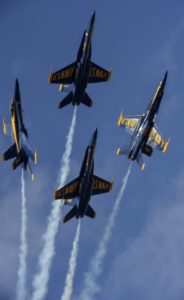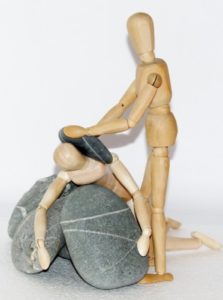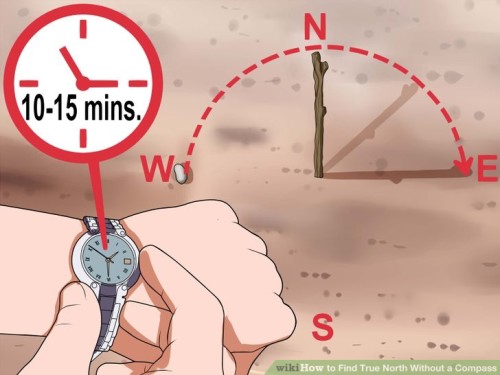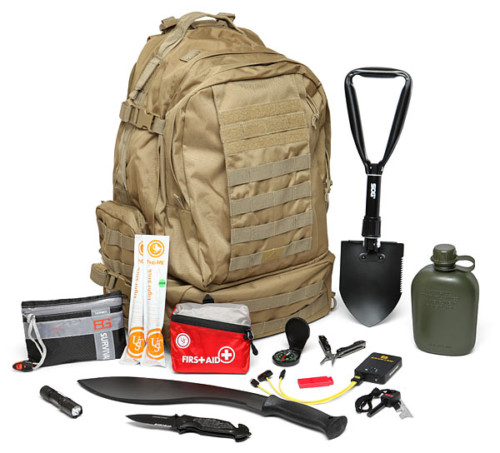
SHTF Prep: Party in the Wasteland
How to form and keep your survival party when SHTF
Those of you who play a lot of videogames or tabletop games will probably have an idea how this works. For those of you who don’t: It’s time to learn a little thing about Party Balance.
There’s a good reason most teams in games and movies are uneven numbers: Conflict resolution. You can take votes, and never risk an even split. No matter who the leader is, you’re going to want your team to be a democracy, because if the leader intends to lead everyone into what seems to be certain doom, the team is going to want to veto that, for good or ill. So for all intents and purposes, there should usually be an uneven number of adults in the team, unless there’s only two of you. Three, five, and seven-adult teams are decent ideas, depending on what the problem is. While larger groups can be harder to house, they can also be better-protected, assuming you can trust your entire survival party.

There’s a habit of not wanting to trust teenagers to understand things or do their jobs, but give the youth some credit. Adults have learned to ignore some abnormalities in their daily lives and not consider them, while the younger and less experienced crowd will treat any unknown with more caution. To add to it, younger members of the team have usually had general education more recently. Someone with a Doctorate in English may not have remember their tenth-grade biology or chemistry quite as well as the kid who had a test on disease evolution last week. It’s a trope you see in survival movies often for good reason: Young People know some things.
Not to say trust a kid with everything, but just keep in mind when they contribute, they will often operate with the best of their knowledge, especially with adults whose opinions they respect.
Now statistically speaking, not everybody can be the leader. You have to learn to work in a team, but you probably already know how that works. You’ve undoubtedly been a part of group projects before, either at work or back in your school days: often you get some slackers and some hard workers; but the ideal purpose of a group is for complimenting skillsets to work together.

Think about who you need to make a society, and try to get a condensed version in your survivalist group:
You’ll need a Doctor. Nobody can stay well all the time, especially when SHTF and infection is bound to run rampant. You need someone who knows what all the different medicines are, and how to use them. A naturalist or essential oil seller isn’t gonna cut it when someone loses an arm or -more likely- a minor infection becomes full-blown sepsis, or even when someone catches the latest flu strain. A pharmacist or EMT may do in a pinch. The point is, you need someone with a strong stomach and a good idea of medicine. If you have a bigger group,two or three could keep your whole party healthy and active.
You’ll need a Workhorse. It sounds mean to put it that way, but you need someone who knows how to lift with their legs. Someone who can build things is a bonus, but no matter what scenario you’re going into, you’re probably going to need to lift heavy things at some point, up to and including people. If I were making a ‘dream team’, I’d look for a tough-as-nails biker type on the outside who has a young kid. Someone who’s scary on the outside but a softie on the inside is exactly what you need for scaring the daylights out of other human threats, and keeping your own team secure (if human threats are a factor in your SHTF scenario).
A Wildlife Expert never goes amiss. When you’ve got to bug out from one place to the next, or you’re camping in the wilderness and trying to create a long-term base, you’re either going to have a wildlife expert, or you’re gonna wish you had a wildlife expert. Perhaps unsurprisingly, this is actually a good task for younger members of the team– particularly Scouts. I know in my last article I pointed out ‘Don’t trust an 80 year old Scouts handbook’, but more recent Scouts will have seen any updates to the material, and it doesn’t take a botany major to recognize poison oak when you see it. Get someone who knows what to do when you encounter predators or venomous snakes, and can recognize some of the region’s most deadly plants. If you’re in Alaska, you’re probably not going to encounter a Manchineel tree, but you will want to know how to recognize a Baneberry. Wildlife Experts are often good at finding or creating clean water and shelter, too, which are -as always- essential in any survival scenario.
The Hunter can be invaluable. While the Wildlife Expert can be all scavenger, if you’re not in an urban environment (and sometimes even if you are), a hunter is exactly who you need, and you need them armed. Someone who can protect the team with weaponry, or provide food and skins for the team. While not all Wildlife Experts are Hunters, most Hunters will by necessity by Wildlife Experts. Hunters who can’t tell which leaves are poison oak don’t tend to stay hunters for very long. They also tend to be good at McGuyvering.
Which beings us to the MacGyver. Every team will likely have a few. You don’t have to be The Professor from Gilligan’s Island, but some people will have more odd fun-facts that come in handy than others. The Biker Workhorse may know you can use pantyhose as a fan belt in a pinch, but the Doctor may know how to use fish antibiotics on humans, and the Wildlife Expert will have more an idea how to rig a rabbit snare. Everyone is likely to MacGyver in their own way. But if you happen to meet an Engineer, they may be the King MacGyver.
Don’t forget the Artist. No I’m not kidding. Though perhaps not as essential for short-term survival, an artist or craftsman of some kind can keep your sanity in longer hauls, writing tunes for longer trips or stories to tell just to keep everyone occupied, or if they’re crafty, making useful tools. When entertained, people forget pain for longer periods of time, stave off hunger, and generally work better with higher morale. Artists can also be helpful for things like making textiles, too. It sounds ridiculous, but there’s a reason there’s a Bard class in tabletop games– You need someone who can entertain to keep everybody from being at one-another’s throats.
The Diplomat is absolutely essential for any large party. This can be anyone in the party, but it has to be SOMEBODY if there’s more than two people. Or sometimes even if there are two people, really. In survival, people are going to be strong-willed, on-edge, and tensions will run high. Even when your party naturally gets along, at nine weeks in a nice place you and your best friends will still be ready to brawl over something stupid.

What’s that old saying, ‘Familiarity breeds contempt’? You’ll want a diplomat to help cool tensions and work things out when disagreements crop up. They’re also likely to be good at bartering, and if you think you’ll run into any other humans who have supplies you need, you’re going to want a diplomat on your team for just that purpose.
When you’ve got a team in order, you’ll want your pecking order, too.
That doesn’t always mean “Leader issues commands, followers follow them”, though it can if that’s the kind of group you’re in. More likely, you’ll want a democracy. That said, A SHTF scenario is not a time for a leader you’re not sure of.
Your leader should know, at the bare minimum
A. What’s going on,
B. Who’s in the team,
C. What your goals are,
D. How we got here in the first place.
Using the old hypothetical ‘Zombie outbreak‘ scenario we all hate, if your leader doesn’t know there’s zombies, that’s a problem. If they don’t know who has what skills and whether we’ve got a zombie or someone likely to hide an infection in the party, that’s a problem. If they don’t know where a possible safe zone is or how to move toward safety, that’s a problem. If they’re not sure how they ended up with a rag-tag group of survivors against the world, that’s probably not somebody you want to trust with a job that requires a memory span, and you’ve got a problem.
Your leader should also know when not to start something. Violence isn’t always the solution, and if your team leader’s response to everything is ‘Shoot first, questions later’, you’re going to have a bad time. Leaders listen, consider, and make command decisions based on what makes sense. More importantly, a leader should be able to admit when they might be wrong, and not make decisions based on ‘Feeling’ or ‘Intuition’.
Pretty sure that’s how cults get started.



